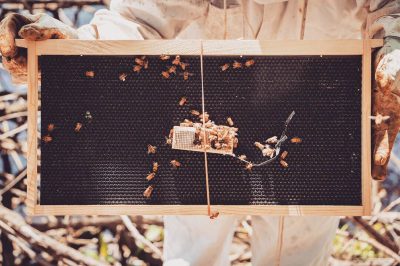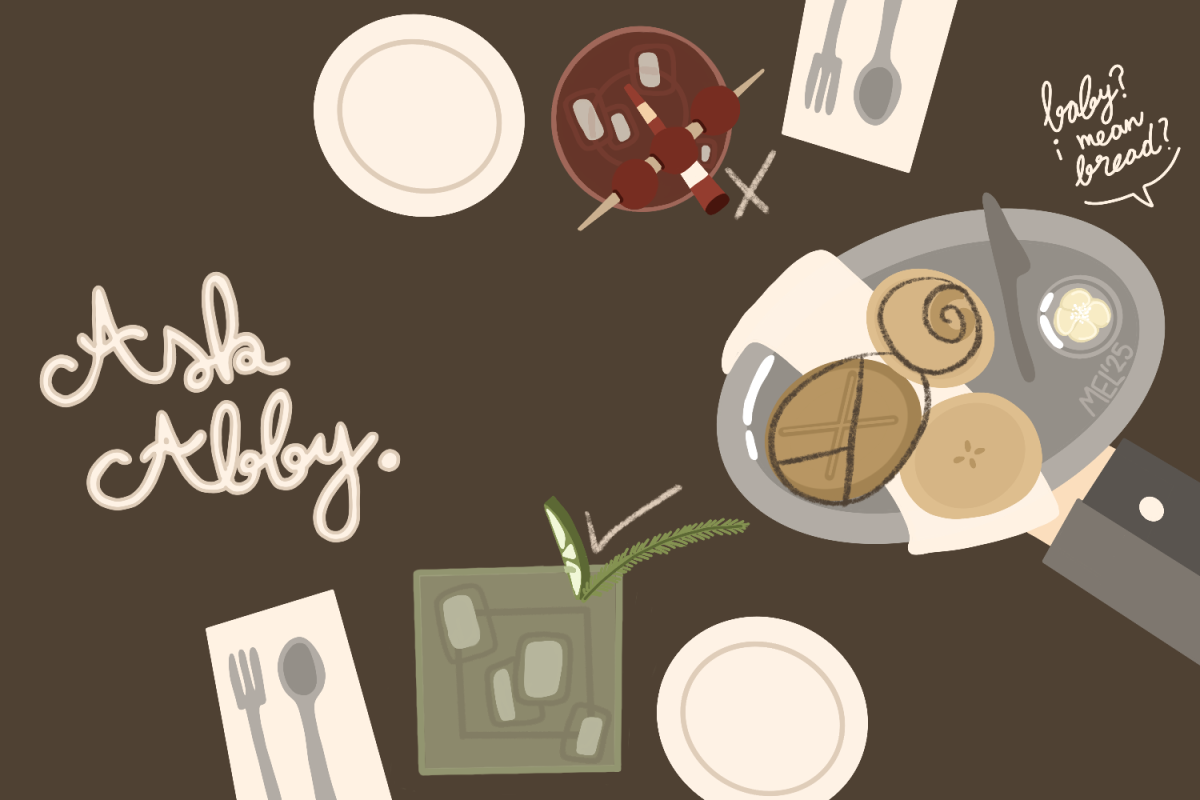
Across the Charles River, commotion ensues at the Boston University DeWolfe Boathouse as the university’s teams jump into rowing shells and take off on the water. Yet, hidden among the bustle, a community of bees hum as they move about the banks and collect nectar to make sweet honey in their hive.
BU Beekeeping club, founded in 2010, cares for the hive and raises awareness for the bees. While the club is technically prohibited from selling any honey or beeswax created by BU’s bees, hive master Allie Cole said she hopes local Cambridge company Follow the Honey may be able to help.
“We are just talking about maybe pairing with a local store called Follow the Honey to see if we can sell some of their honey and hopefully get past all the regulations and legal stuff,” said Cole, a sophomore in the College of Arts and Sciences.
The bees feed off of golden reeds growing along and near the river banks. Grace Wong, BU Beekeeping secretary and a CAS sophomore, said the proximity to the Charles is beneficial for the club’s hive because the plant grows in excess near the river. Wong added that golden reeds are a healthy food source for bees.
Cole explained the river works as a highway of sorts for the hive by giving the bees a clear route to find food.
“Being by the river, there’s like a constant access to vegetation and flowers because they can follow the river and follow that greenery,” Cole said. “It’s better than having them in a city where there’s no place to get pollen from.”
The club raises awareness about bees through an initiative that includes holding informational sessions, according to Cole, in coordination with Kathryn Spilios, the club’s faculty advisor and a senior lecturer in the biology department. Sessions cover topics such as the waggle dance.
“The waggle dance is how bees communicate, so a bee will go out, find a field of flowers and then come back [to the hive], and depending on how far away it is and the angle of the sun, it will do a sort of dance where it wiggles its body at a certain angle to the honeycomb,” Cole said. “That will tell the other bees how far away it is … as well as how valuable it is as a food source.”
The club has the one hive that lies near the boathouse, but the organization seeks to help more bees in the long run by actively working to combat their decline, Wong said. According to statistics gathered by the Bee Informed Partnership, the bee population in the state of Massachusetts declined by 58.8 percent in 2017.
“With bees dying out by higher numbers, year and year, especially within the U.S.,” Wong said, “we want to create a sustainable environment for bees to live in, especially at BU, as we are students here. We hope that by doing this we can contribute to helping the environment.”
This year, the club saw a spike in interest at the annual student activities fair, Splash. Cole reported the club currently has around 50 members, with 300 students saying they were interested at Splash earlier this month.
Grace Mezzanotte, a freshman in CAS who recently joined the Beekeeping club, said her interest was initially sparked by the group’s commitment to raising awareness for bees and because her family has a history with beekeeping.
“I wanted to join Beekeeping club because my dad has experience with beekeeping, and I’m passionate about the importance of bees in our environment,” Mezzanotte said.
Looking toward the future, Cole said she hopes that as bee populations continue to decline, the efforts of the Beekeeping club will help stall what could one day be a global tragedy.
“We hope that our club is helping this, spreading the word,” Cole said.
Although beekeeping may not be an interest to many students, Cole said she hopes that at least the greater BU community is able to learn more about this issue.
“Be aware about the bees and what’s happening,” Cole said.











































































































